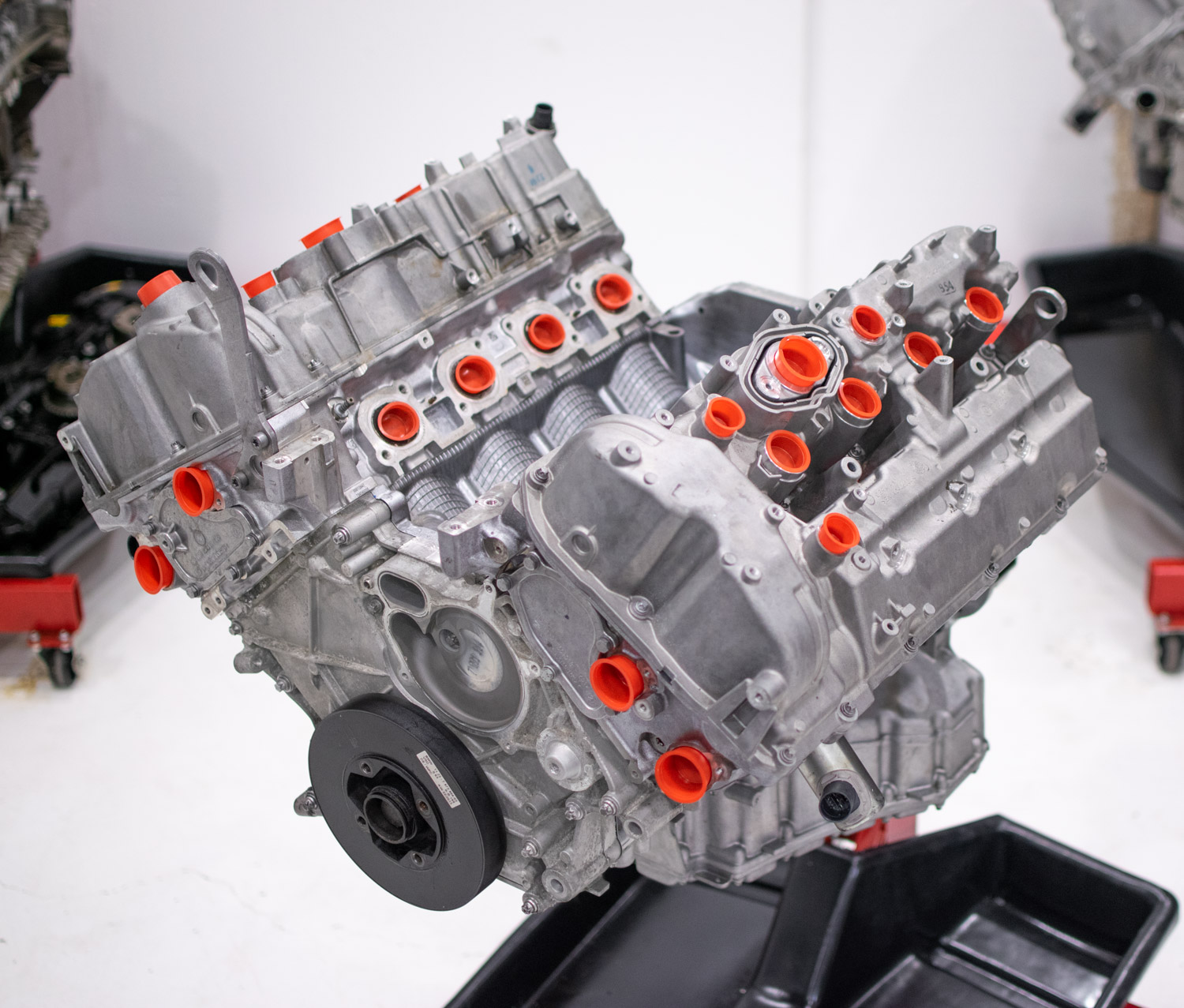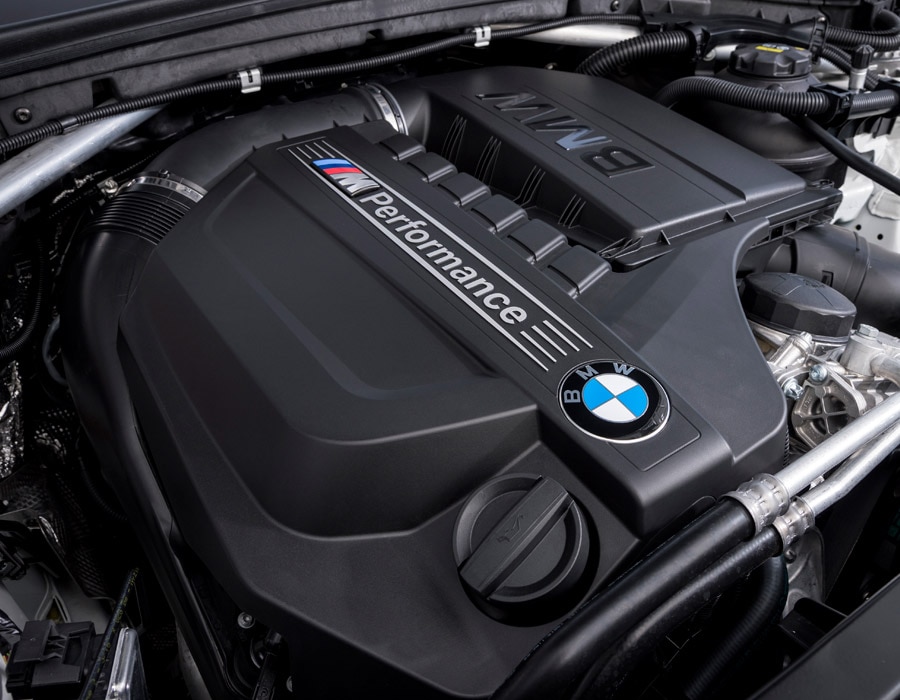Top 5 BMW Engine Technologies Changing the Automotive Market
Top 5 BMW Engine Technologies Changing the Automotive Market
Blog Article
Unveiling the Intricacies of Next-Generation Power Units: a Deep Study Advanced Engine Layouts and Innovations
In the world of automotive engineering, the unrelenting quest of sustainability, effectiveness, and efficiency has actually driven the development of power units to extraordinary elevations. As we depend on the precipice of a new age in transport, the intricacies of next-generation engine layouts bid us to explore the sophisticated technologies and advancements that assure to redefine the driving experience. From advanced materials that push the borders of resilience and weight decrease to sophisticated turbocharging and supercharging systems that elevate power result to brand-new levels, each element of these power devices holds an essential to unlocking the future of vehicle engineering. Delving much deeper right into the worlds of emission control, intelligent engine monitoring systems, and the horizon of power device development, we discover ourselves on the cusp of an improvement that guarantees to reshape the landscape of wheelchair as we understand it.
Development of Engine Products

The change towards progressed engine materials has also made it possible for designers to make engines with greater power outcomes while keeping gas performance requirements. As an example, making use of light-weight materials lowers the general weight of the engine, leading to enhanced fuel economic situation and lower exhausts. Additionally, improvements in products innovation have actually enabled for much better thermal administration within engines, resulting in increased reliability and long life.
Turbocharging and Supercharging Technologies
How do Turbocharging and Supercharging Technologies change engine efficiency and performance in modern automobiles? Turbocharging and supercharging are modern technologies that substantially boost engine efficiency by enhancing the quantity of air intake into the combustion chamber. Turbocharging attains this by making use of a turbine driven by exhaust gases to pressurize the intake air, while turbo charging makes use of a belt- or chain-driven compressor to attain the same effect.
These modern technologies make it possible for smaller, much more fuel-efficient engines to generate power equivalent to larger ones, recognized as downsizing. By requiring more air right into the cylinders, turbo charging and turbocharging enhance combustion effectiveness, resulting in boosted horse power and torque output without a substantial boost in engine dimension. This results in much better velocity, pulling capacity, and total driving efficiency.
Additionally, supercharging and turbocharging contribute to improved gas performance by enabling the usage of smaller engines that take in less gas under normal driving problems - bmw engine. This combination of enhanced performance and efficiency has actually made turbocharging and turbo charging important elements of lots of modern engine styles
Exhaust Control and Environmental Impact
With enhancing international issues relating to air high quality and ecological sustainability, the application of discharge control innovations in automobiles plays a crucial role in lowering hazardous contaminants launched into the ambience. Modern vehicles are geared up with innovative emission control systems that aid reduce the ecological impact of vehicle you could try this out procedures. Catalytic converters, as an example, are made to transform poisonous gases such as carbon monoxide, nitrogen oxides, and hydrocarbons into less damaging compounds like co2 and water vapor.
Moreover, developments in engine modern technology, such as the assimilation of exhaust gas recirculation systems and discerning catalytic reduction, have actually significantly added to decreasing discharges. These modern technologies work in tandem to enhance burning effectiveness and reduce the launch of hazardous toxins into the air. Additionally, the growth of hybrid and electrical lorries represents a crucial step towards decreasing the total environmental impact of the transportation sector.
Intelligent Engine Administration Equipment

Additionally, these systems allow lorries to fulfill strict exhausts requirements without jeopardizing performance, giving a more eco-friendly driving experience. The assimilation of man-made intelligence and device learning abilities in engine monitoring systems proceeds to press the borders of what is possible, bring about further improvements in performance, integrity, and overall lorry efficiency. bmw engine. As automotive innovation developments, smart engine management systems will certainly play a vital role in shaping the future of transportation towards an extra effective and sustainable instructions
Future Trends in Power System Development
As intelligent engine administration systems lead the way for boosted control and optimization in modern vehicles, future patterns in power unit development are poised to redefine the landscape of vehicle propulsion modern technologies. One of the essential fads driving advancement look at here in power system advancement is the shift in the direction of electrification. With an increasing concentrate on sustainability and lowering carbon emissions, hybrid and electrical powertrains are becoming extra common in the automobile industry. These different power resources supply boosted performance and performance while aligning with rigorous ecological regulations.
An additional substantial trend is the integration of sophisticated materials and making techniques. Lightweight products such as carbon fiber and light weight aluminum are being used to lower general vehicle weight, enhancing gas performance and performance. Furthermore, advancements in 3D printing and additive manufacturing are allowing the manufacturing of complex engine components with higher precision and durability.
Furthermore, expert system and equipment understanding are playing an important duty in maximizing power device efficiency. These technologies enable real-time surveillance and flexible control, resulting in extra efficient and trusted power delivery. On the whole, future trends in power system growth are tailored towards performance, sustainability, and performance, driving the automotive market in the direction of a new age of propulsion innovations.

Final Thought
In conclusion, the advancements in engine products, turbocharging, emission control, and intelligent administration systems have actually paved the means for next-generation power systems. The detailed designs and technologies in contemporary engines check that display the continuous development of automotive innovation.
Exploring the progressive improvements in engine products has actually been crucial in enhancing the performance and performance of modern engines. Over the years, the evolution of engine materials has actually played an essential duty in pressing the boundaries of what engines can achieve.The shift in the direction of advanced engine products has additionally enabled designers to develop engines with higher power outcomes while keeping gas performance requirements.The implementation of smart engine administration systems in modern cars has actually revolutionized the method engines are regulated and maximized for performance and effectiveness. By collecting data in real-time and analyzing it with sophisticated algorithms, intelligent engine administration systems can adapt to driving styles, ecological elements, and engine health and wellness to optimize power outcome while decreasing fuel intake and emissions.
Report this page